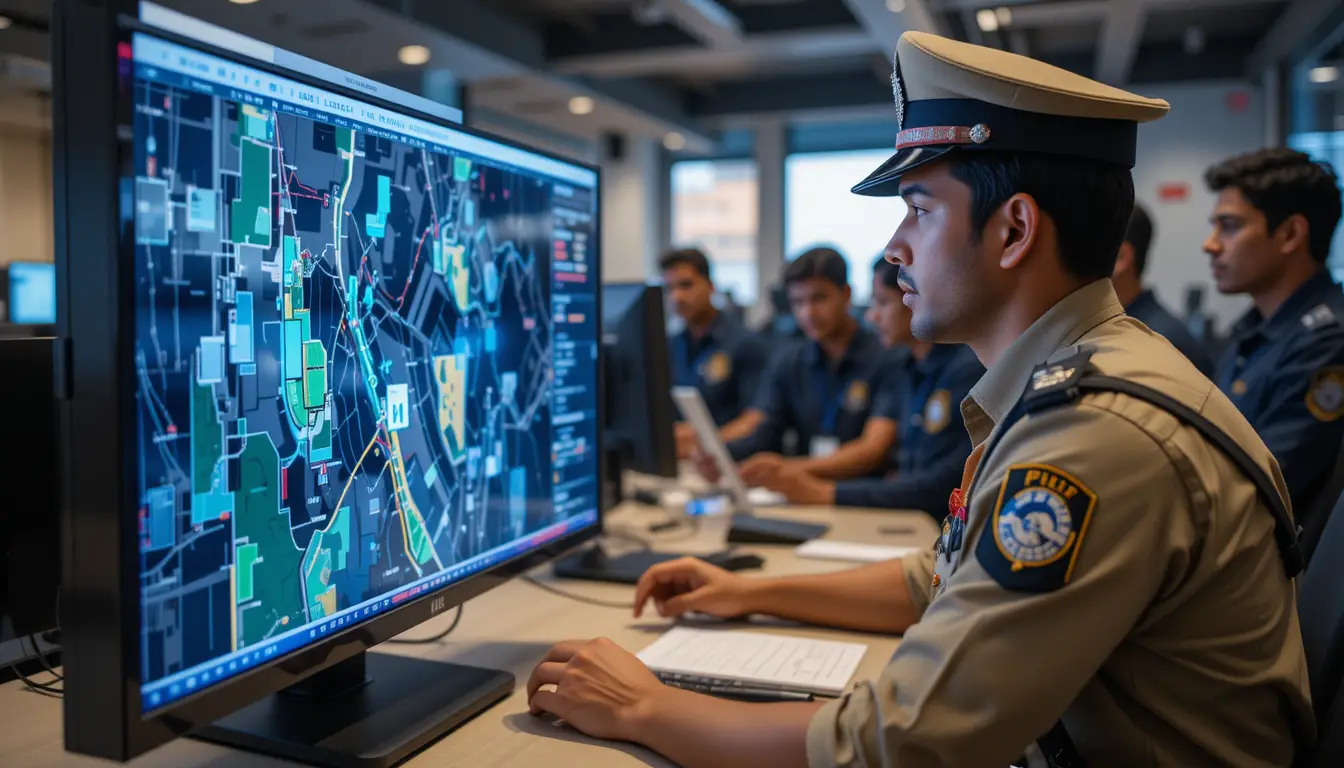Web Desk
A group of final-year engineering students from Mumbai has developed two cutting-edge AI tools that are changing how the city’s police fight crime.
These tools were created through a collaboration between the KJ Somaiya Institute of Technology and Mumbai Police, focusing on areas like Mulund, Ghatkopar, Sion, and Shivaji Nagar—zones where over 600 officers worked across 18 stations.
One tool helps predict where crimes might happen next. The other helps ensure timely submission of chargesheets, so criminals don’t walk free due to legal delays.
Predicting Crimes Before They Happen
The first tool, an AI-powered Predictive Policing System, uses five years of past crime data to spot patterns and forecast future incidents.
It focuses on crimes like mobile theft, vehicle theft, and chain-snatching.
In March 2025, this system went live on a trial basis. Within just a month, it correctly predicted three incidents before they happened—with 75% accuracy. That’s like being one step ahead of the criminals.
Prof. Radhika Kotecha, who led the research, said, “We trained the system using years of crime records, cleaned the data, and used AI models like hierarchical clustering and the Haversine formula to spot high-risk zones.”
Officers now get weekly reports with hot zones and crime windows, helping them plan patrols better.
Additional Commissioner of Police Mahesh Patil noted, “In real-time use, the tool pinpointed likely crime spots within 500 meters with up to 80% accuracy.
That’s a game-changer for field deployment.”
According to the institute, the tool performed with:
85.71% accuracy for motor vehicle theft
80% for mobile theft
77.16% for suspected mobile thefts
This initiative started during an AI training session for police officers.
When DCP Navnath Dhavale discussed using AI for forecasting, the students and faculty quickly turned the idea into reality in just four weeks.
Fixing Delays in Chargesheet Filing
The second tool is the Chargesheet Submission Monitoring System (CSMS).
It’s a mobile platform designed to ensure officers file charge sheets on time—something often missed in the current system.
If delayed, accused individuals can be released on “default bail,” even if they’re guilty.
The CSMS sends automatic SMS reminders to investigating officers, station heads, and zonal ACPs 25, 15, and 5 days before the due date.
Officers can log details like FIR numbers, case types, and relevant laws.
Over 600 officers are now using it. “It’s helping us stay on top of deadlines,” said CP Patil. “Plus, it gives us monthly reports by zone, officer, and crime category, so we know where we’re lagging.”
The Future of AI in Policing
What started as a classroom project is now supporting real officers in the field.
With increasing data, the crime prediction system is expected to get even smarter.
Suresh Ukarande, director of KJ Somaiya School of Engineering, summed it up well: “Our students are not just learning—they’re building tools that protect people.”
This story is a rare glimpse into how technology and public service can come together.
As Mumbai faces rising urban crime, these AI solutions are helping police stay one step ahead.

